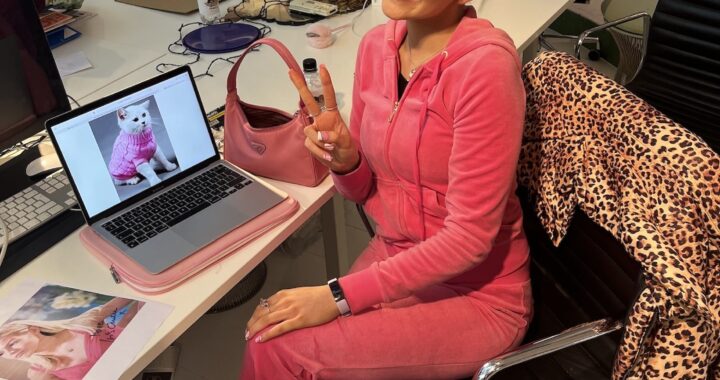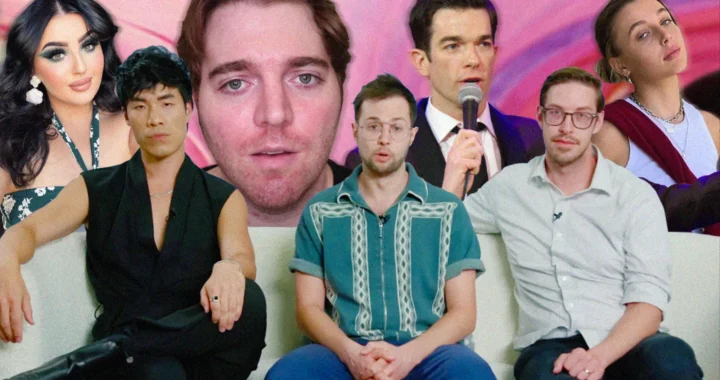In our attention economy, dating app users are trying out a new tactic to get matches: ugly photos
My friend Daisy asked for some help with setting up her Hinge profile the other week. “Are there too many pictures of me with a drink – do I look like an alcoholic?”, she asked, sliding her phone over to me and our other friend, Holly. “No,” Holly said, wrinkling her nose. “But it’s too normal.”
“You need to show people that you’re a bit weird, a bit interesting,” she explained. I nodded in agreement. “My old profile had this horrible picture of me,” I said. “I was at a festival, in the rain, no makeup on, with the hood of my waterproof jacket up. I looked so ugly.” Daisy looked baffled, and understandably so – why would I put an ugly photo on a dating app?
Everyone has heard of ‘catfishing’: when someone presents themselves as ‘better’ than they are in real life on social media platforms or dating apps. They might heavily edit their photos, or in extreme cases, use photos of someone else entirely. But now, people are doing precisely the opposite of this: presenting themselves as ‘worse’ than they are in real life, supposedly to ‘pleasantly surprise’ their date when they actually meet up. Think pictures of users caught off-guard, in media res: eating or blinking or talking (or… in the rain at a festival). It’s a trend which has been dubbed ‘reverse catfishing’.
23-year-old James uses less conventionally attractive photos on dating apps. “I want to show all different sides to me. So I have some serious ones, where I’m smiling or doing a hobby, then a few silly ones – like pictures of me dancing, or pictures of me pulling a stupid face,” James says. “I’m trying to attract someone who doesn’t take anything too seriously, especially on social media.”
“If they did something similar with their pictures then I’d probably think ‘that’s what I’m looking for’ – I’m not after someone who’s really uptight about how they look, I guess,” he adds. The trend tracks with trends seen elsewhere on the internet, such as the rising popularity of warped 0.5 selfies, ‘casual posting’, and of course, BeReal. People are pushing back against years of hyper-curated content on social media, and in some ways, it’s unsurprising that this desire for ‘authenticity’ is now permeating dating apps.
People don’t want gym selfies or brunch pics – they want a photo of you screaming on a rollercoaster or dressed as Shrek for Halloween. Another term, coined by TikTok user Caitlin MacPhail, has entered common parlance to describe ‘warning signs’ that a potential match is too boring, or not being ‘authentic’ enough: “beige flags”. These could be things like expressing a strong preference for pineapple on pizza, references to “banter”, or claiming hiking, the most inoffensive hobby going, is their favourite pastime.
Earlier this year, researchers Carolina Bandinelli and Alessandro Gandini published a research article titled ‘Dating Apps: The Uncertainty of Marketised Love’. In the article, Bandinelli and Gandini explained that dating app users are made to commodify themselves in the process of creating a profile: “they recognise the need to produce a desirable presentation of the self in order to ‘stand out’ from ‘competitors’”. And increasingly, in our attention economy, it’s ugliness which stands out – not meaningless statements like “I’m convinced ketchup goes in the fridge”, as the discussion surrouning ‘beige flags’ proves. It does make sense: confronted with seemingly limitless options, dating app users rely on signifiers which differentiate their potential matches from the infinite sea of other users.
But it’s paradoxical. Users with profiles riddled with beige flags are branded as inauthentic, but isn’t reverse catfishing equally ‘fake’? My ugly photo at that festival wasn’t that ugly. Choosing that photo wasn’t an earnest bid to be ‘authentic’ – it was just a way of signalling to my potential matches that I was the type of person who 1) goes to music festivals and 2) is ‘funny’. James feels similarly. “I choose unconventional photos not just to act like I am different, but to show it, and put that across in pictures,” he says. It’s kind of similar to how big brands often act kooky for engagement on social media, like when Sunny D tweeted “I can’t do this anymore.”
It’s less about the photos themselves, and more about what the photos signal. Bandinelli and Gandini write about this too, arguing that “daters primarily use ‘signalling’ to navigate the structural uncertainty that characterises dating apps as online social environments.” It’s an inevitable trap we fall into when we use dating apps. To create a profile on Hinge or Bumble or Tinder is to cultivate a personal brand, while to swipe through others’ profiles is to attempt to decipher their personal brands. It’s dehumanising for all involved: users treat each other like commodities, swiping left on anyone who seems like a normie and making mental ‘pros and cons’ lists about their matches. As Eliza McLamb put it on a recent episode of the Binchtopia podcast, referring to her personal experience on dating apps: “I feel like I’m a piece of meat on a deli counter.”
Maybe this is obvious, given that dating apps themselves are businesses – which, at the end of the day, will always put profit before people. But it’s not as simple as logging off anymore: a staggering 74 per cent of Gen Z and Millennials use dating apps, and at this point many young people can barely comprehend how previous generations coped without them. The marketisation of romance on dating apps has infected the way young people view love, and, as Bandinelli and Gandini write, “at stake is a form of ‘cold intimacy’ whereby ‘efficiency’ and ‘rationality’ tend to replace passion.”
Ultimately, it‘s impossible to get your personality across properly on dating apps or social media, and trying to do so is almost entirely fruitless. Some users may be better marketers than others, but that‘s all creating a profile is – marketing. Our only hope is to move romance back offline and into the real world – a task which often feels like a Sisyphean effort, especially given how addictive these apps are. But all hope is not lost: there is certainly a sense that many of us are sick of dating apps and at least want to try meeting people organically, even if we don’t quite know where or how to begin. This resonates with James. “Those dating apps, they’re not that great – I don’t have much luck on them, at all,” he says, pausing to think. “It’s hard to get across who you are from just pictures.”



